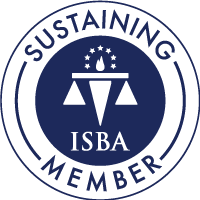Gone are the days when the only way to finalize a divorce was a courtroom battle. Those who choose to end their marriage now have options, including alterative dispute resolution (ADR). One example is mediation.
How is mediation different from going to court?
Mediation does not move forward in court, in front of a judge. Instead, mediation uses a neutral third party to help guide negotiations, with the goal of developing a divorce settlement agreement. There is not a judge making a final decision but a mediator who serves to help the parties, the divorcing couple, put together a divorce settlement agreement.
There are some distinct advantages to mediation compared to traditional litigation. These can include:
- Time. Mediation generally takes less time to reach a resolution compared to a court divorce. This is, in part, because the divorcing couple is not confined to the court’s calendar.
- Cost. Because it takes less time, mediation is often less expensive than a courtroom divorce.
- Control. Both parties get to decide if they agree to a proposed solution, not the judge.
Mediation is especially helpful for those who wish to coparent after divorce. This is because the process encourages cooperative conflict resolution and clear communication which can reduce the risk of further conflict when navigating a parenting plan after the divorce is finalized.
The final agreement is also voluntary. Unlike a court case, where the court’s decision is essentially final unless you wish to appeal, the parties can choose to abide by the results of mediation or to pivot and move forward with litigation.
What is the process for mediation?
First, the parties or the court chose a mediator. The mediation process itself can occur in virtual platforms or in person and is confidential. It will consist of one or more meetings, where both parties can share their goals and a mediator will attempt to help the parties put together a final divorce settlement agreement.
How can I prepare for a successful mediation?
The first step is to take time to prepare for the process. Gather important financial documents and other information relevant to the divorce. It can help to prepare a draft of the divorce agreement and propose the document at mediation. You can then work together to refine the document and tailor it to your specific situation.
It is also helpful to have the right team on your side during the mediation process. This can include legal counsel as well as financial experts if complicated assets, like business interests, are part of the marital estate.


